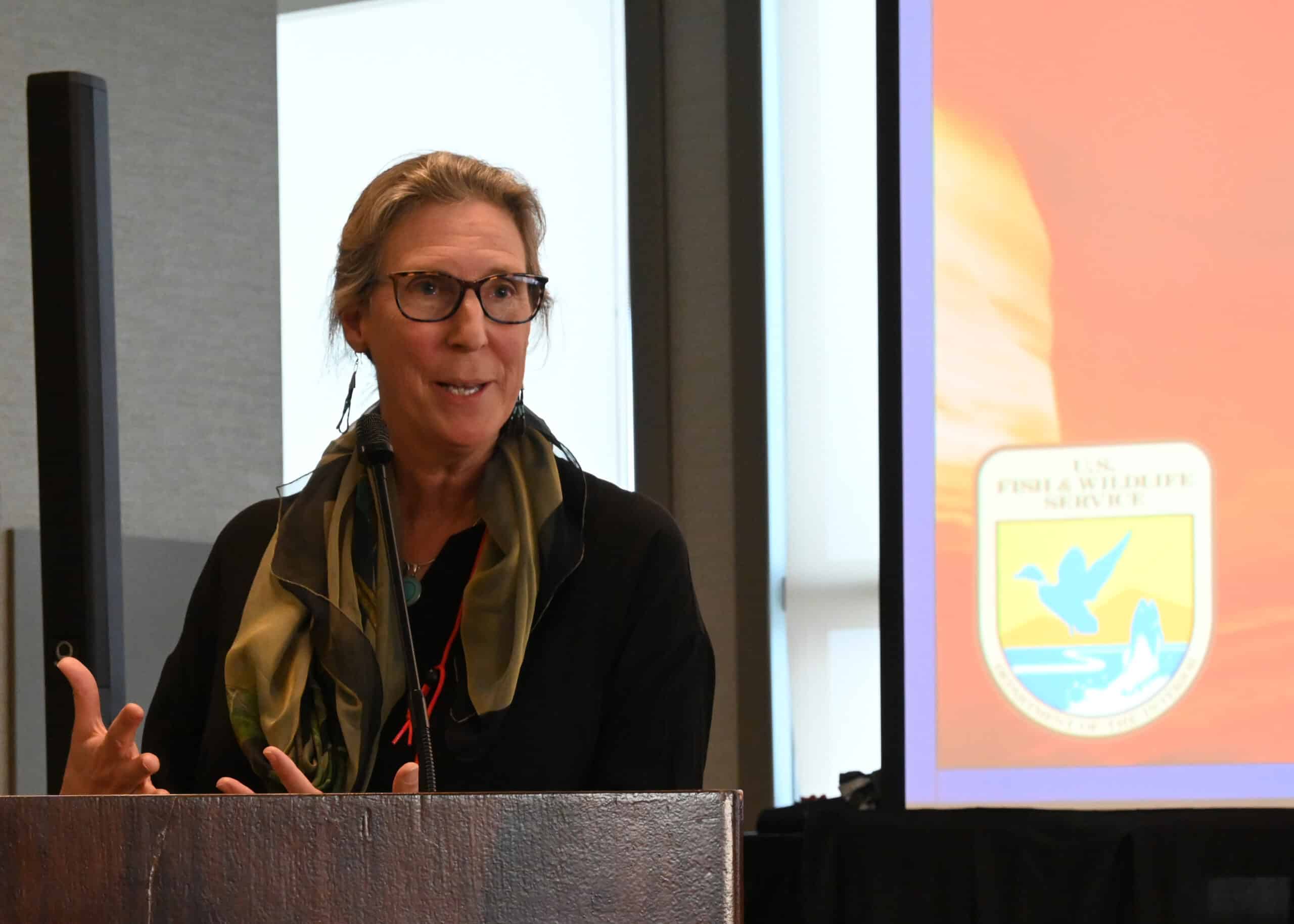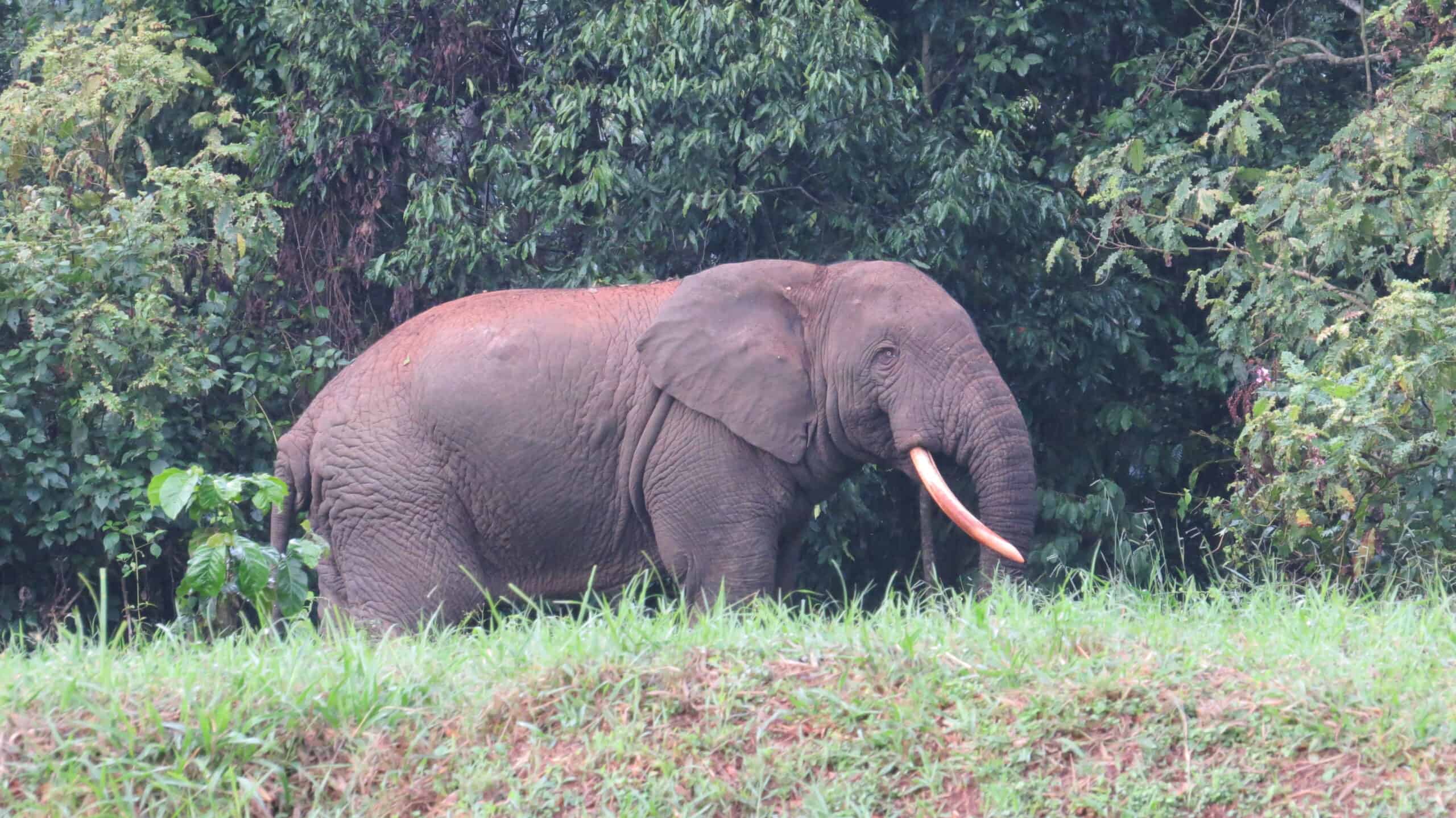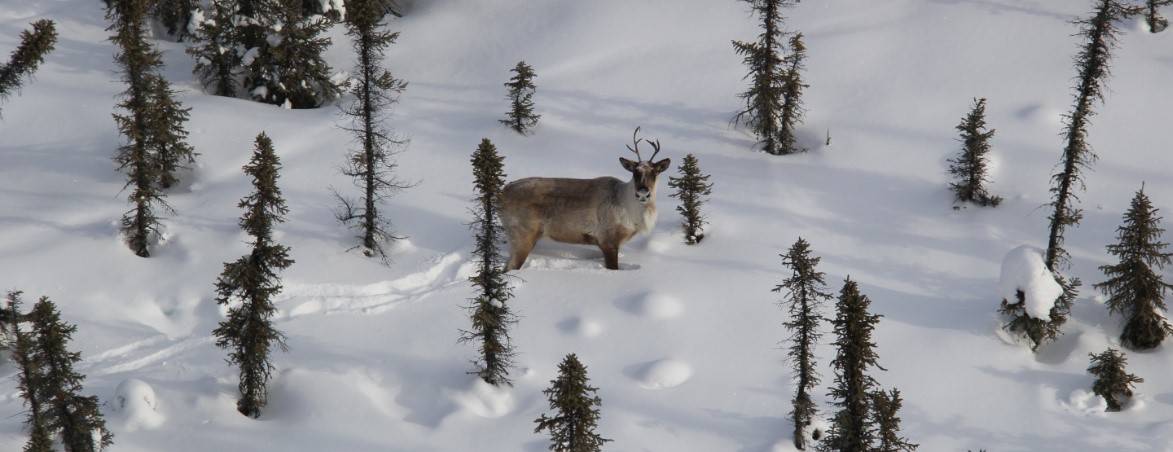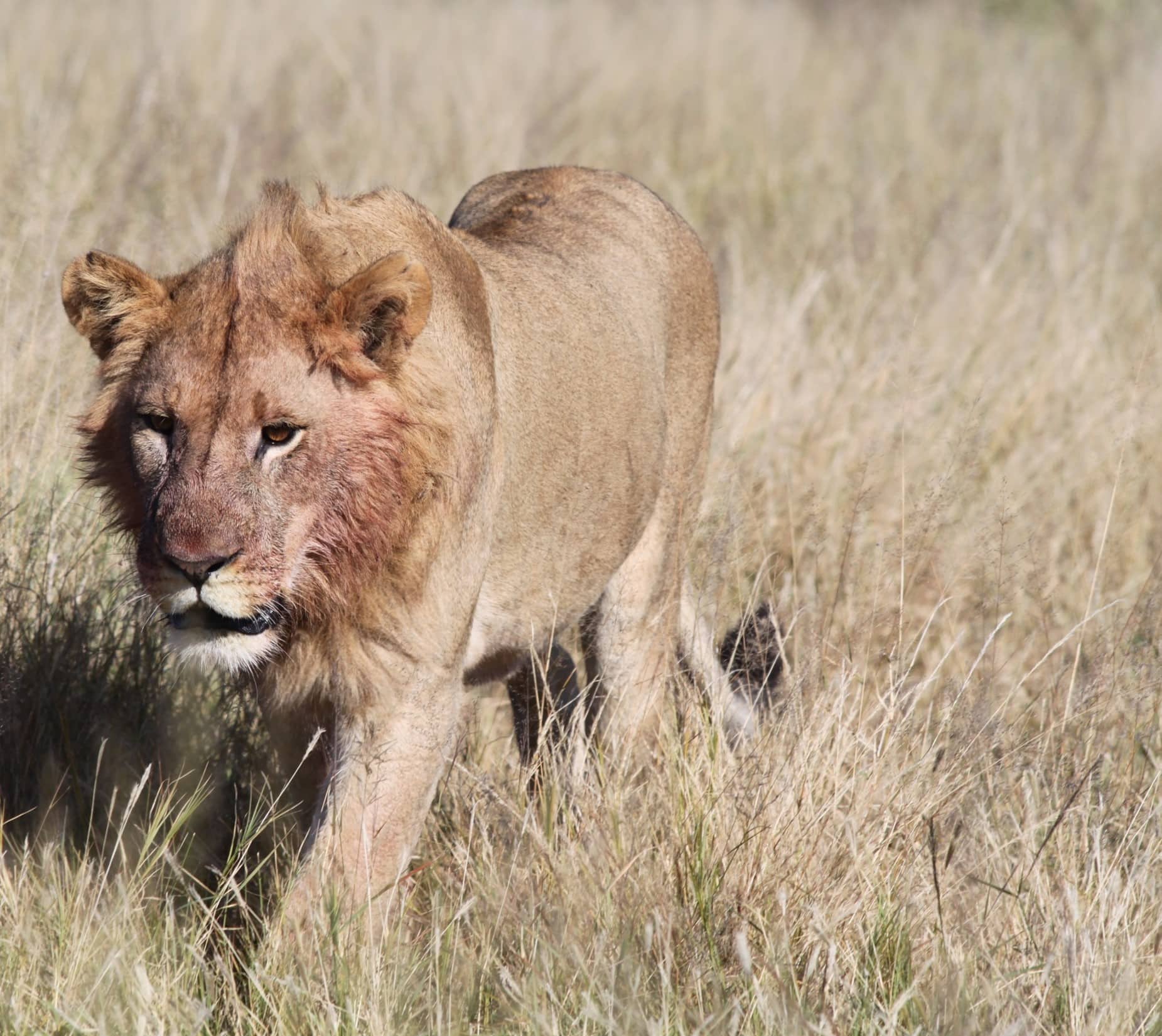Share this article
Women wildlife conservation leaders discuss mentorship
Top women wildlife leaders joined together to share their journeys
Women wildlife leaders convened at The Wildlife Society’s 30th Annual Conference to share the importance of mentorship from both sides—being a mentor and having a mentor.
The session “Leaders in Conservation on Mentoring the Next Leaders” brought together a group of women who overcame obstacles in a male-dominated field to reach top leadership positions in conservation.
“What an amazing cohort of women leaders here,” said Sara Parker Pauley, the director of the Missouri Department of Conservation and former president of the Association of Fish and Wildlife Agencies, who kicked off Tuesday’s discussion.
Joining her were Martha Williams, director of the U.S. Fish and Wildlife Service; Mamie Parker, former head of fisheries for the USFWS; Karen Waldrop, chief conservation officer for Ducks Unlimited; Anne Kinsinger, associate director of the U.S. Geological Survey; Becky Humphries, retired CEO of the National Wild Turkey Federation; Jenny Dickson, wildlife division director for the Connecticut Department of Energy and Environmental Protection; Janet Bucknall, who leads USDA Wildlife Services. The panel was moderated by Cynthia Perrine, executive director of the Northern California Regional Land Trust.
These women “have proven to be great leaders,” said Parker, who, long before becoming a conservation leader was the first Black girl to integrate her Arkansas elementary school. “They have proven to be great followers. Because mentoring is all about the art of giving and receiving wisdom.”
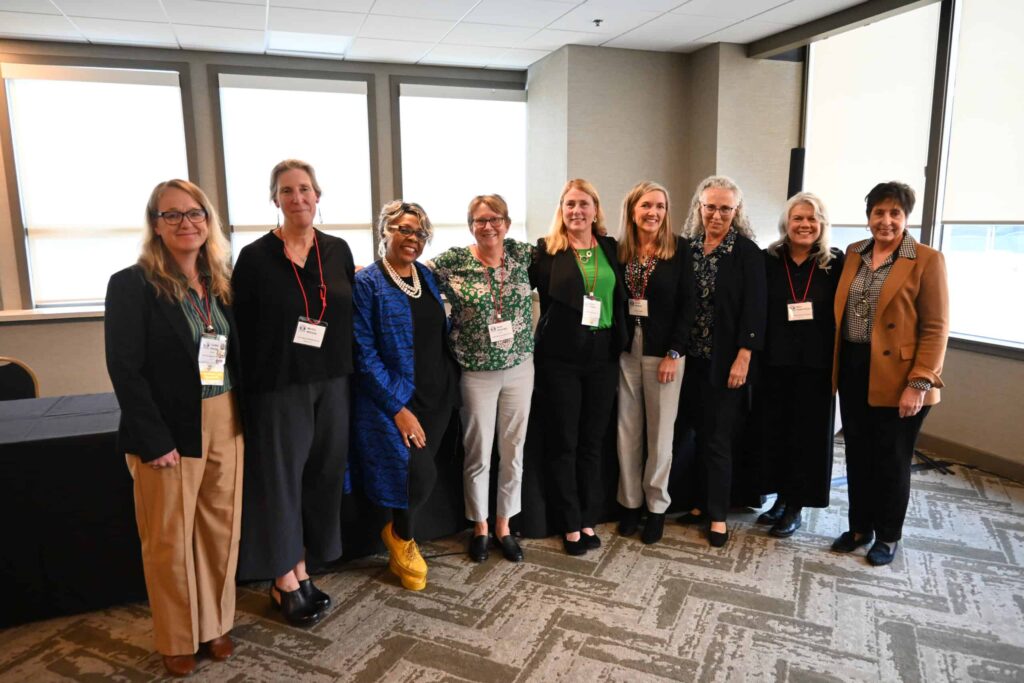
For Dickson, her father, an avid angler, was an early mentor, showing her that fishing wasn’t just about catching fish. “He gave me the space to ignore the fish and be fascinated by a beaver or a turtle sunning on a log,” she said.
For Waldrop, early mentorship came from her mother, who nurtured a love for nature, even when Waldrop came home with frogs in her school lunch thermos.
For Williams, a key mentor was a supervisor who supported her career through pregnancy and her husband’s cancer, urging her to stay on even when she handed in her resignation. More recently, it was her current boss, Secretary of the Interior Deb Haaland, another woman conservation leader, who, as a member of the Pueblo of Laguna, became the first Native American to serve as a cabinet secretary.
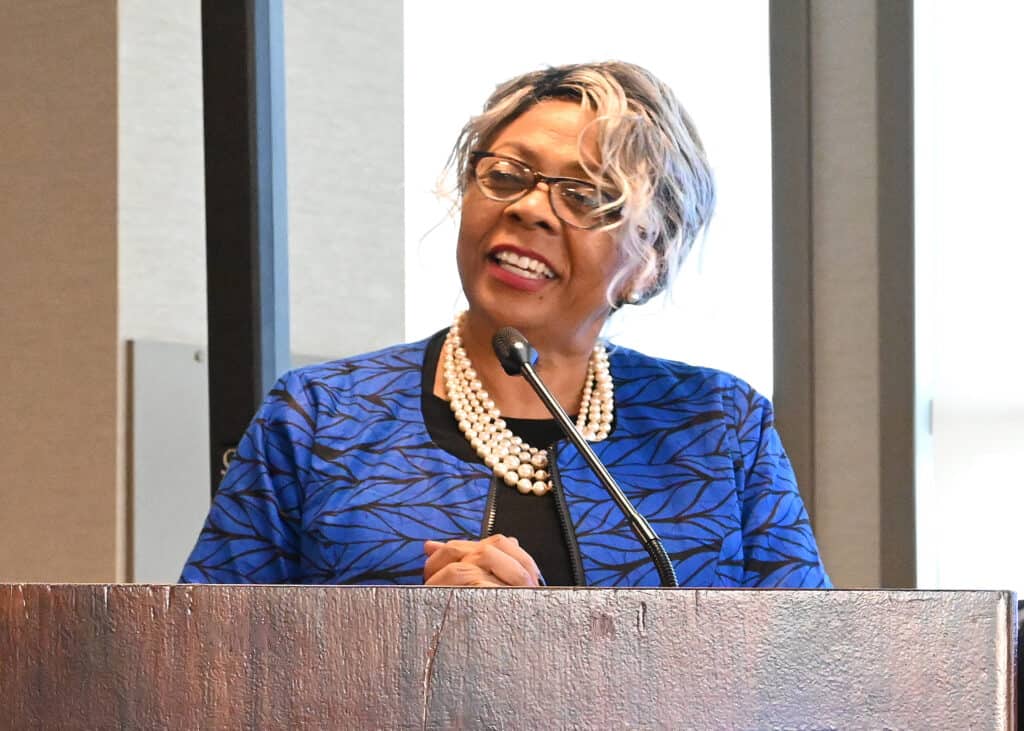
“We went on a trip to Alaska, and what I learned from her, the questions she asked in her interactions with Native Alaskans, was the concept of the long game,” Williams said. “Long-term impacts. Are we thinking in a long enough period of time? I realized my approach to conservation was so driven by what I’ve learned in many of these meetings, but it was not driven by her genuine ways of knowing.”
For Pauley, life can be seen as a hero’s journey. “You are a hero in the making,” she told a packed conference room, “and I’m so excited for the journey.”
Header Image: U.S. Fish and Wildlife Services Director Martha Williams discusses the important role of mentorship in her life at TWS’ Annual Conference. Credit: David Frey/TWS



